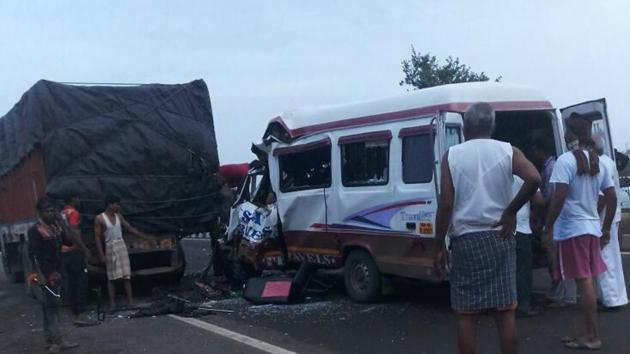Rash driving on Mumbai-Nashik highway can cost you your licence
The Maharashtra Highway Traffic Police’s zero-tolerance project will be implemented on a pilot basis on the Nashik highway this year.
Rash driving on the Mumbai-Nashik highway will cost you heavy penalties or even the suspension of your licence, under the Maharashtra Highway Traffic Police’s zero-tolerance project.

The drive, implemented on a pilot basis on the Nashik highway this year, is a step towards making all highways in the state safe, according to the traffic police.
The drive was initiated after the state’s highways reported a total of 13,707 fatal accidents in 2018.
The 96-km Mumbai-Nashik highway has 107 black spots — stretches notorious for accidents — and 18 hot spots — areas that do not have proper lighting or have dubious curves. Between January and March this year, 161 accidents took place on the highway, killing 71 people, critically injuring 87, while 46 others sustained minor injuries.
Vijay Patil, superintendent of police (highway safety), said, “Most of the accidents on this stretch are because of speeding and talking on the mobile phone when driving.”
Speeding, using mobile phone when driving, jumping signals and drink driving are some of the traffic violations that could cost you your licence, according to the traffic police.
In the first three months of 2019, the highway police suspended the licences of nine of the 2,652 offenders on the Mumbai-Nashik highway.
According to the highway police, there were 55,320 violations from January to March and ₹1,30,55,100 was collected in fines.
In collaboration with the National Highway Authority of India (NHAI) and an NGO, Resilient India, the highway police have begun penalising violators under a World Health Organisation (WHO) module. Patil said when they were surveying the highway, they caught 22,000 speed violators in 10 days, prompting them to start the project
“We have positioned cranes and emergency vehicles near the hot spots so that accident victims can get immediate medical assistance. Apart from this, we have also blocked unauthorised median cuts across the highway, which was causing accidents,” said Patil.
The police will replicate the project on all Maharashtra highways in the coming days.
WAITERS, SHOPKEEPERS TO BE FIRST RESPONDERS TO ACCIDENTS
“Even if I am able to save one life, it will mean everything,” says Feroz Shaikh, 22, a waiter from Hotel Dreamland near Kasara Ghat.
Shaikh is among the 700 restaurant waiters and shopkeepers along the Mumbai-Nashik Highway who have undergone training to be the first responders to road accidents, under the Maharashtra Highway Traffic Police’s zero-fatality project.
Suraj, Niranjan, Vishal, Pramod, Sunil and Ravi from Hotel Sai Plaza in Igatpuri were also part of the batch .
“Earlier, we would witness accidents, but feel helpless then. This basic training will be beneficial and we will be able to save lives,” says 26-year-old Ravi Gupta.
According to the traffic police, they found that the stretch between Thane and Bhiwandi naka had witnessed more accidents compared to the stretch beyond the toll booth.
With this in mind, the police in collaboration with the National Highway Authority and an NGO, Resilient India, began a first-responders training programme.
“We had observed that the first responders in many cases would feed victims water, while they were unconscious. That was dangerous. We have now begun training waiters on how to handle victims until emergency vehicles can reach the spot,” said Rajeev Choubey, member of Resilient India.
“The first round of training has been completed,” says Choubey.
The police will also impart basic CPR and firefighting training to the 700-member batch.
Aditya Chaudhary, who owns a shop at Vashind Phata, was also delighted to be part of the project.
“We see accidents almost once a week on the highway. The police and ambulance do not come on time, which results in the loss of lives. We could just make a call to emergency services earlier, however, now we can do our part and save someone,” says Chaudhary.
Patil said that the golden hour — the immediate one-hour period following a traumatic injury — is crucial with major trauma centres in big cities.
“The victims are first taken to primary health care centres, which are not equipped to handle trauma patients. In the second round, we would also impart hazmat training in cases of oil spill or fuel tanker-toppling accidents,” says Patil.
After the second training session, the police will take a practical exam of waiters and shopkeepers, after which they will be given badges and be made a life-support volunteer.



